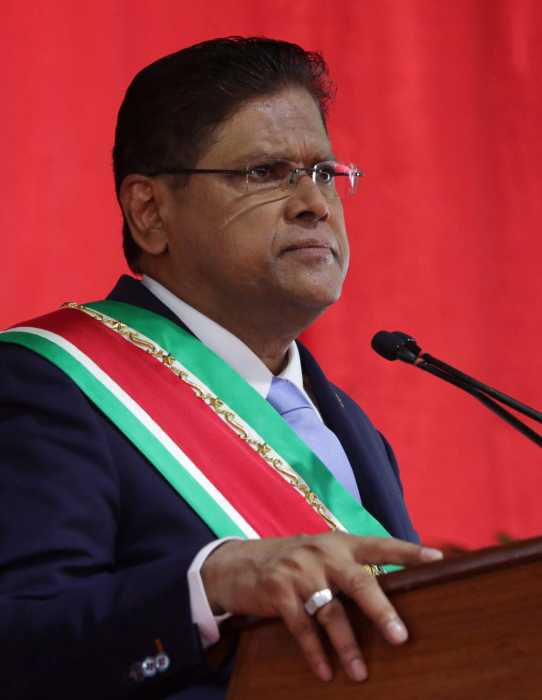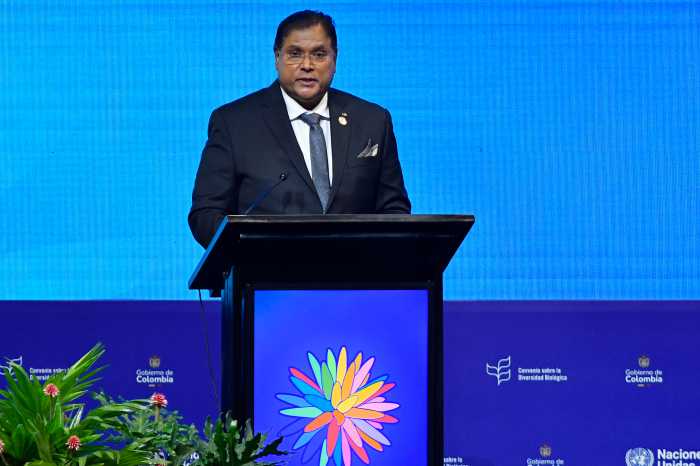Caribbean Community (CARICOM) leaders and their Mexican counterpart, Felipe Calderon, ended their one-day summit in Barbados on May 21, deciding to collaborate on a range of issues, including tourism, transport, trade, investment and national security.
“We have agreed to share experiences and strategies in an effort to develop small and medium size enterprises in the private sector,” Surinamese President Desi Bouterese, the current chairman of the 15-nation regional bloc, told reporters at the post-summit news conference in Bridgetown, the Barbados capital.
“We have also agreed to work together as part of gains in transnational crime and for citizen security,” he added, stating that Mexico’s cooperation will go a long way in helping CARICOM address some of the ramifications of the current economic climate.
Earlier Mexico and CARICOM signed two agreements to boost cooperation on largely high-tech education and rebuilding earthquake-ravaged Haiti.
“Mexico and CARICOM will also be working closely with our member state Haiti as we seek the reconstruction process of that country following the 2010 earthquake,” Bouterse said.
“The community used the opportunity to thank Mexico for its assistance. The community is looking forward to working with Mexico and Haiti to fulfill the objectives of the memorandum of understanding and cooperation towards Haiti, which was signed on Sunday (May 20),” he added.
CARICOM Secretary General, Amb. Irwin LaRocque, and Mexican Foreign Minister, Patricia Espinosa, signed two memoranda of understanding (MOU), as foreign ministers wrapped up talks in preparation for the second CARICOM-Mexico Summit at the Barbados Hilton.
Host foreign minister Maxine McClean, who chaired the foreign ministers’ meeting, said a technical cooperation agreement covered “critical areas for the development of our respective cooperation biotechnology, health, engineering, environment, nanotechnology, tourism, natural disasters, trade and energy.
“That cooperation would involve exchange of academics and graduate students,” she said.
In the second MOU, McClean said CARICOM and Mexico also agreed to work together with its poorest member state in its reconstruction.
“We know that, since the tragic earthquake, we’ve had several promises of support internationally, but Mexico has actually engaged Haiti and has contributed in several significant ways to that effort to rebuild,” she said.
“And we believe that, as CARICOM seeks to play its part, we could more closely with Mexico,” she added.
Calderon has also pledged to aid the region in combating natural disasters and climate change.
“In the environment, we committed to continue to fight climate change and to take into account in particular the impact of climate change on small island states, global warning and growth of the level of the sea, as well as to renew serious international long term action in terms of mitigation and adaptation,” he said.
CARICOM leaders also pressed Calderon to support their call for reform of international financial institutions, such as the International Monetary Fund (IMF) and the World Bank, when Mexico hosts the G-20 summit on Jun. 18 and 19.
“Barbados and members of CARICOM are not members of the G-20. We are seen as middle income, but we are highly vulnerable, highly indebted,” McClean said.
“It is important that we have persons who can articulate our case,” she added.
“And, therefore, countries like Mexico who would have indicated that there are very happy to do so, we will sit and dialogue and ensure that there is a full appreciation of the very vulnerabilities that we face notwithstanding our successes to date,” the Barbados foreign minister continued.

























